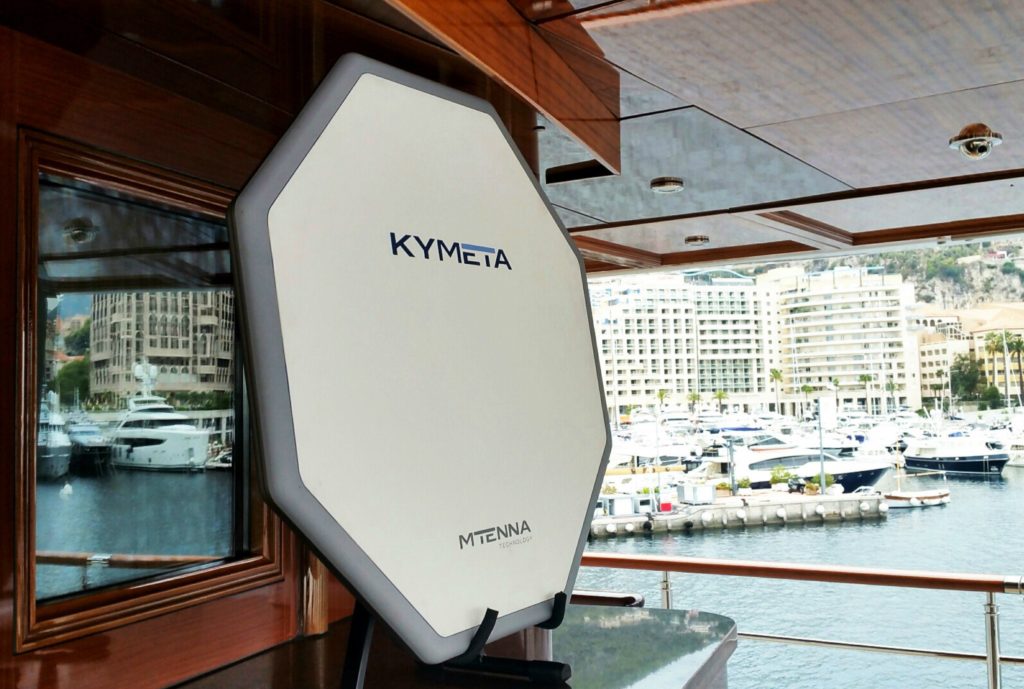Bill Gates-backed Kymeta wows Monaco’s yacht crowd with its flat-panel antennas

Kymeta Corp., the flat-panel antenna company that’s backed by Microsoft co-founder Bill Gates, has demonstrated the capabilities of its satellite broadband data transmission technology in front of a tough crowd: the rich and famous at the Monaco Yacht Show.
“This is really about us showing our first product in action,” said Nathan Kundtz, president and CEO of the venture headquartered in Redmond, Wash.
Kymeta makes stop-sign-sized antennas that take advantage of metamaterials to receive satellite signals without having to turn and focus on the spacecraft flying overhead.
During the week surrounding the show in Monaco show, which ran from Sept. 28 to Oct. 1, Kymeta set up two of its antennas on the roof of the stylish Restaurant Virage to provide Wi-Fi access for the Superyacht Owner’s VIP Lounge.
Read more at GeekWire